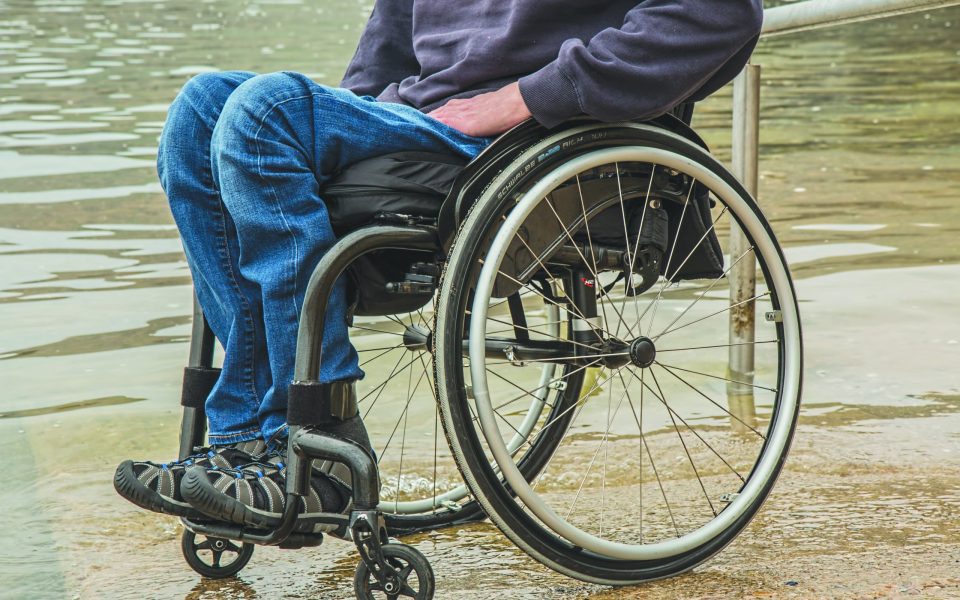Holli Ward considers herself very lucky. When her husband Richard had a stroke at age 46, Ward was already a professional caregiver. She was able to advocate for disability benefits, such as Social Security, she might not have known about otherwise.
Her clients at Age With Grace, an organization that works with families of older adults with disabilities, are not always able to fight for themselves. Sometimes, there are no benefits to fight for.
“There are some really good programs in Forsyth, but they are very disjointed,” she said. “There isn’t much there for people. [My clients] are in that age range where they don’t qualify for aging services, but they’re too old for what you would give a younger person.”
In a recent WalletHub study, researchers ranked 182 cities in a list of best and worst for people with disabilities. The survey includes the 150 most populated cities in the US as well as at least two of the most populated cities in each state. Each city was ranked based on economy, quality of life and healthcare.
Winston-Salem came in at 176, below Greensboro, which was 167. Winston-Salem ranked 77th in economy, 175th in quality of life and 157th in healthcare while Greensboro ranked 79th in economy, 145th in quality of life and 172nd in healthcare. Other North Carolina cities included Raleigh at 96, Durham at 106, Charlotte at 149 and Fayetteville at 158.
“The system is broken in my opinion,” said Ward. “A lot of these people are good people who worked hard all their lives and have now outlived their money. What do you do with these people? Do you just leave them at home without services and let them die? That may be the only option and that’s sad.”
The CDC reported that one in four adults in the US have a disability that impacts their lives. The costs of those disabilities can be very expensive. The National Disability Institute noted that in households containing one adult with a disability that limits their ability to work, that household needs to make 28 percent more income to maintain the standard of living of a similar household without a disabled adult.
One of the tools at advocates’ disposal is disability insurance, but that can be difficult to obtain. Amanda Fitzgerald, interim executive director of Disability Advocates of Northwest NC, says the initial applications are only accepted about 30 percent of the time, which is in line with numbers from the Social Security Disability Resource Center.
“One of the tricky things is that it’s easier to get them if you’re too disabled to work, but if you stop working you have no income,” said Fitzgerald. “A lot of our clients have no savings. We have people who continue to work through really difficult medical circumstances.”
In addition to the economic cost, the social cost of having a disability can also lead to challenges.
“The barrier is cultural and social,” said Bailey Pittenger, a Winston-Salem resident who was diagnosed with exertional compartment syndrome in her late twenties. “When you disclose, you often get treated differently.”
Pittenger’s diagnosis means that her muscles don’t always expand when she moves, which affects blood circulation. She is the primary caregiver for her mom who is also disabled and who has been on Social Security for the last year and a half.
“What Winston really needs is more care infrastructure,” she said. “There are so many gaps, especially for folks that have to have 24/7 care. What would be best is if we had home- and community-based services.”
Pittenger said she has not disclosed her disability at the high school where she works as an English teacher. She has been there for three months and knows one person who’s brought up their own disability, and Pittenger does not know anyone else who teaches disability justice in the classroom.
At the Triad Abolition Project, where Pittenger is a co-founder, she said she has been able to talk about having exertional compartment syndrome more readily.
“It really came from the perspective of disability justice for me,” she said. “Before that, I changed my website to create accessible abolitionist actions. I saw people reach out because of that, because it was a tool of access. I’ve had more conversations about that. I see a lot of people getting involved or wanting to know more about disability justice advocacy. That’s the community I’ve felt most accepted in.”
Jean Hall, the director of the Institute for Health and Disability Policy Studies at the University of Kansas and one of the contributors to the WalletHub study, said there are several easy ways to make cities more accessible, like involving people with disabilities in planning.
“Things that we think about as being accessible for people with disabilities are great for everyone,” said Hall. For example, she noted how automatic doors help people with wheelchairs, but also parents with strollers and UPS workers carrying packages.
Shanna Kattari, a professor at the University of Michigan and another contributor to the WalletHub study, agreed with Hall, noting that, increasingly, accessibility is good for cities in general, particularly when it comes to tourism.
“I don’t go anywhere where it doesn’t seem like it would be friendly for me to visit,” said Kattari, who theirself has a disability.
Like Hall, they mentioned having people with disabilities on city design teams, but also taking ideas from other cities. For example, Denver parking lots are free for at least four hours in a lot of places, which makes it easier for people who, for example, may not be able to reach the machines because they use a wheelchair.
They also referenced centers for community living, nonprofits that center the needs of people with disabilities and accessible creative life, like art galleries that cater to disabled artists or theater matinees designed for those with noise sensitivities.
Being able to enjoy city living was a big factor in WalletHub’s quality-of -ife category. For example, Raleigh, which was 96th overall but 29th for quality of life, provides alternative print materials, additional staff and additional adaptive materials for those who want to enjoy city parks.
“We’re looking at over a quarter of our population, and that’s a pretty big deal for cities,” Kattari said. “A lot of the folks people want to come to their cities, people who are excellent in tech or STEM, even if they don’t have a disability they likely have a family member with a disability.”
Join the First Amendment Society, a membership that goes directly to funding TCB‘s newsroom.
We believe that reporting can save the world.
The TCB First Amendment Society recognizes the vital role of a free, unfettered press with a bundling of local experiences designed to build community, and unique engagements with our newsroom that will help you understand, and shape, local journalism’s critical role in uplifting the people in our cities.
All revenue goes directly into the newsroom as reporters’ salaries and freelance commissions.


Leave a Reply